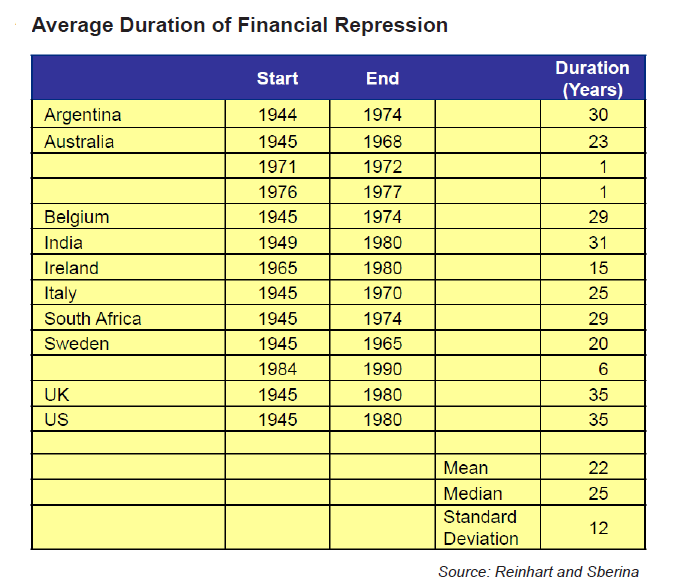James Montier, who works at the intersection of value investing and behavioral investing (Author of ‘The Little Book of Behavioral Investing’ http://amzn.to/X9Olzc on Amazon among others) has a great quote in his latest white paper published by GMO Global Investment Management entitled “The 13th Labour of Hercules:Capital Preservation in the Age of Financial Repression” Note that you may have to register at the site (free).
His paper discusses the effects of financial repression on portfolio stock and bond allocations and by implication the effects on real estate and particularly apartment building investments. Financial repression is the term used to describe central bank’s strategies for forcing interest rates to zero or negative to spur investment and spending at the expense of saving. Take it away James:
William McChesney Martin was the longest-serving Federal Reserve Governor of all time. He is probably most famous for his observation that the central bank’s role was to “take away the punch bowl just when the party is getting started.” In contrast, Bernanke’s Fed is acting like teenage boys on prom night: spiking the punch, handing out free drinks, hoping to get lucky, and encouraging everyone to view the market through beer goggles. [Emphasis mine]
The paper goes into depth on the effects of financial repression on investments, which grow the longer the repression lasts, up to twenty years. Does the phrase: “… for an extended period” ring a bell? How about QE1, QE2, QE3, and now QE-infinity?

Apartment buildings are the real estate equivalent of dividend paying stocks with the added kicker of inflation protection potential so Montier’s discussion of how the length of the period of financial repression affects the returns of different asset classes applies to apartments as well. According to his analysis backed up with lots of research presented in the slides, the longer the period of repression the higher the percentage of risk assets (apartments in our case) should be in a prudent portfolio. The downside is that if the repression is shorter than anticipated stocks will lose value and that will cause a ‘permanent impairment’ in the portfolio.
Since the end of repression means that interest rates and inflation would rise you can see how this would hurt stocks. One of the main advantages that apartment investments have over stocks is that rents can be raised with inflation which would raise the income and therefore the potential value. While it is true that cap rates also tend to rise with inflation an apartment owner with fixed rate financing would be paid well while waiting through the cycle until cap rates fell again to a rate that would make a sale very profitable.
As you can see from the chart above the average repression lasts about 22 years, and the last US period lasted 35 years. Given that we are in QE-infinity or repression without end how long is the current period of financial repression likely to last? With apartment building investments the length of the repression may just prolong the buying opportunity and as long as properties are bought ‘right’, i.e. less than replacement cost and they provide positive returns from day one the owner can employ the most successful investment strategy of all time: patience.
In James’ appendix, ‘Tobin’s Q and Financial Repression’ there is a great quote from Keynes who was not just an economist but a great investor also. The piece ends with a great quote from James himself:
So whilst financial repression clearly doesn’t impact replacement cost, it can alter the valuation of the asset in the market. Effectively, Tobin is arguing that policies such as those of financial repression will change the “equilibrium” level of Q. Indeed, Tobin argues that creating “arbitrage” opportunities (a wedge between replacement cost and market valuation) is one way in which central banks can affect the real economy. [Emphasis mine]